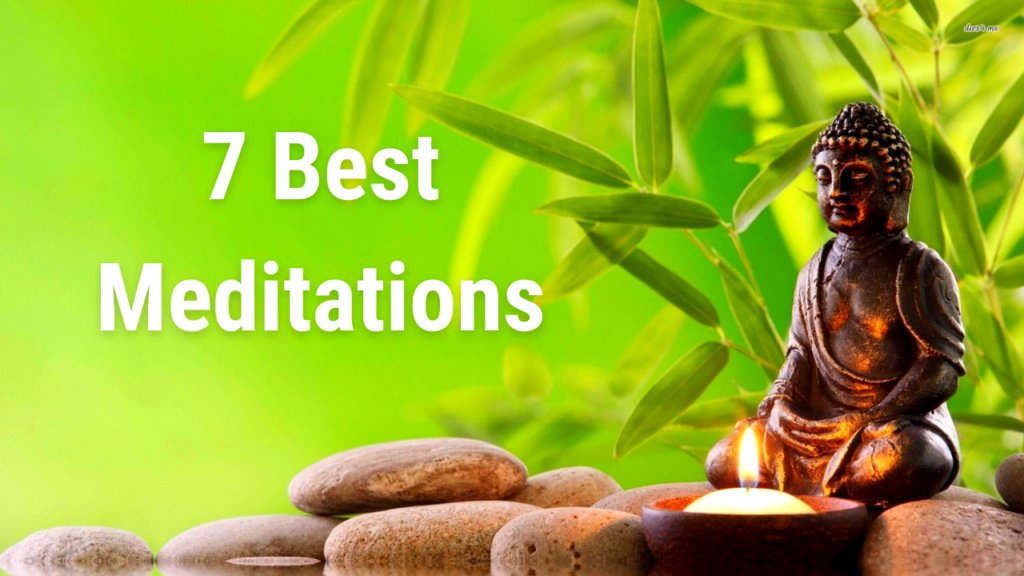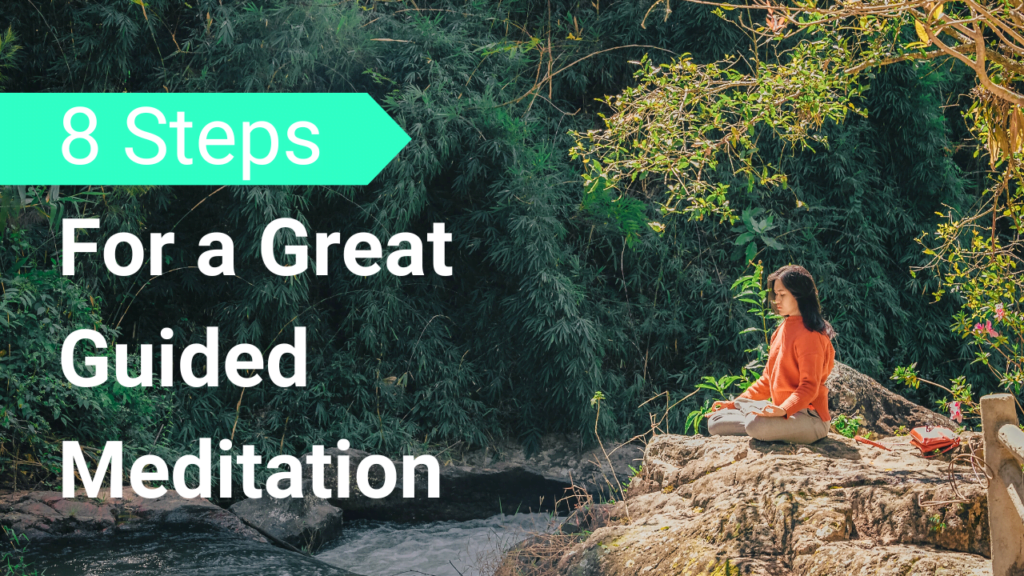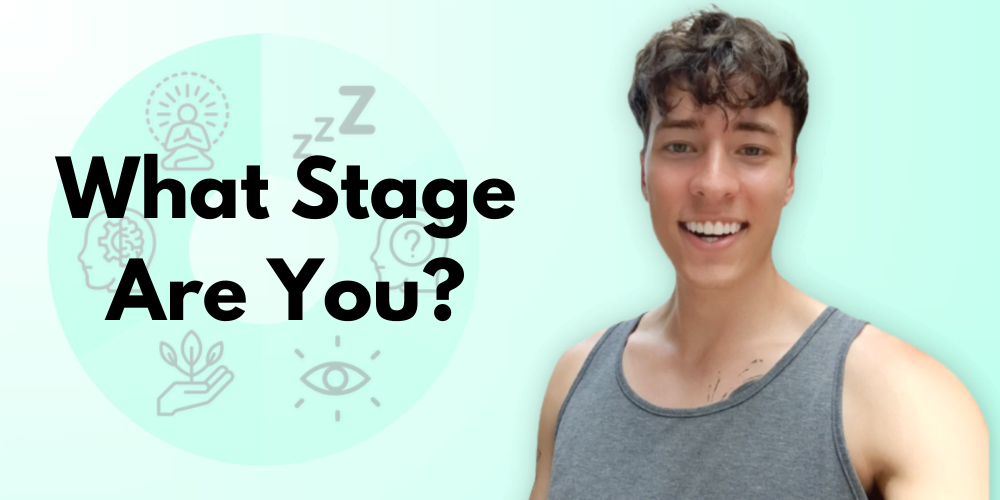7 Best Types of Meditation: Which is Best For You?
Take the free meditation quiz at the end to see what type of meditation is best for you You’ve heard it before, “you should try meditation, it’s so helpful!” and it’s true, meditation has so many wonderful benefits. But because there are so many different types of meditation out there it can begin to feel overwhelming and difficult to know where to start. Today we’re going to discuss the seven best types of meditation that can help you reduce stress, nurture your spirit and enhance your overall well-being. Today we’re going to cover these 7 types of meditation: The 7 Main Types of Meditation 1. Mindfulness Meditation Best for: Beginners The first type of meditation on our list is Mindfulness Meditation, which is all about being present in the moment. Mindfulness Meditation is based in non-judgmental observation. Mindfulness is simply observing any and all sensations, thoughts, and emotions that arise and disappear. By practicing mindfulness you can start to create space between the noise in your life and what’s real in the present moment. This usually involves observing your thoughts and feelings without judgment, and learning to focus on the present rather than dwelling on the past or worrying about the future. Mindfulness meditation is a great first meditation to do or learn because it is the basis of so many other meditations including those on this list. 2. Loving-Kindness Meditation Best for: Starting your day Loving-Kindness Meditation (aka Metta Meditation) is another powerful meditation that can help cultivate compassion and kindness in yourself and others. Metta meditation consists of connecting with your inner compassion and bestowing love onto yourself and those around you unconditionally. Metta meditation involves sending positive affirmations and wishes to yourself, your loved ones, and even to people who have hurt you in the past. This type of meditation can be particularly powerful and may be good for the beginning of the day to start it off with a loving mindset. Loving-kindness meditation is also a great and easy guided meditation to find online. 3. Transcendental Meditation Best for: Quieting the mind quickly Transcendental Meditation is a mantra-based meditation that involves repeating a specific sound or phrase to quiet the mind and achieve a state of deep relaxation. Some types of transcendental meditation include simply listening to a continuous sound rather than creating a sound. Either way, transcendental meditation is meant to focus your mind on a single thing (often times a sound or mantra) to help ground you in this moment and get you out of your head. This practice has been shown to reduce anxiety, reduce stress, and boost overall brain function. > see my article “Struggling To Meditate? 7 Common Issues And Their Solutions” 4. Somatic Meditation Best for: End of the day Somatic meditation is a meditation with a focus on the body. This type of meditation ties in mindfulness practice, but in this case the focus is on bodily sensations and relaxing the body. This is a great mediation to do at night as it releases the stress stored in your body from the day. Somatic meditation can be a powerful body relaxer. As the body relaxes and releases tension so too does the mind. Though this meditation begins in the body, it can be an incredibly great tool to relax and unwind your mind. There are a few different subtypes of somatic meditation such as: 5. Vipassana Meditation Best for: Spiritual seekers Vipassana Meditation is a Buddhist practice that originated in India. Vipassana involves observing your thoughts, sensations, and emotions with a non-judgmental attitude. The purpose of this type of meditation is to help you see reality as it truly is. This type of meditation can help you gain insight into the nature of reality and reduce suffering by developing a greater awareness and understanding of yourself and the world. This is a particularly powerful meditative technique for those seeking spiritual awakening or spiritual enlightenment. Vipassana has been known to give it’s practitioners countless insights and help deepen their spiritual practice. > see my article “20 Signs Of Spiritual Awakening & How To Know You’re Waking Up” 6. Yoga Meditation Best for: People who struggle to sit still Yoga Meditation combines physical postures with breathwork and meditation to achieve a state of relaxation and inner peace. This type of meditation not only benefits your physical health but also helps you connect with your inner self and cultivate mindfulness. Mindful yoga practice is perfect for people who don’t like traditional meditation. People who struggle with sitting still or focusing their mind can find yoga practice to be a great alternative to nourish their spirit and relax. 7. Guided Meditation Best for: When you’re unmotivated Guided meditation is a much more passive type of meditation where someone else guides you through the process. Guided meditations can be very diverse in nature and are often another good option for beginners. The instructor or guide in the meditation reminds you to come back to your practice as our minds tend to wander by themselves. This is a perfect option for individuals who want to keep up their meditation habit but struggle to motivate themselves to meditate on their own. YouTube has thousands of free guided meditations, so you’ll never run out of quality guided meditations in any format. > see my articles “How To Lead A Great Guided Meditation” & “The 5 Best Meditation Teacher Training Certifications Of 2023” Conclusion So there you have it, the 7 best types of meditation that can help you reduce stress, nurture your spirit and enhance your overall well-being. I encourage you to try a couple of these out, as each one may not be for everyone. Try a few and see which resonates most with you and your lifestyle. Remember, the most important thing is to approach meditation with an open mind. If you find you like meditation, try to establish a meditation routine to build a habit of relaxing and nurturing your spirit for the
7 Best Types of Meditation: Which is Best For You? Read More »



